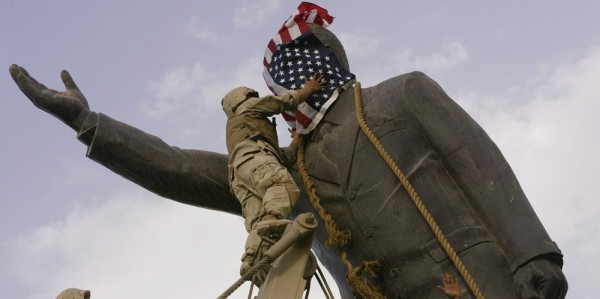

The commander of U.S. troops in in the Middle East and Southwest Asia cannot say if the wars in Iraq and Afghanistan will ever end.
Army Gen. Joseph Votel, head of U.S. Central Command, was noncommittal on Thursday when Task & Purpose asked him at a Pentagon news briefing how much longer U.S. troops will have to fight in the “forever wars.”
The following briefing excerpts have been edited for length and clarity.
Q: From where you sit, do you expect that a new generation of children will grow up to have to fight in Iraq and Afghanistan?
I’m not sure I’m qualified to make that kind of assessment here. I guess what I would just highlight for you is these things often take time. I do recognize we’ve certainly been in Afghanistan for a long time – and of course, we’re back in Iraq for a second/third time addressing some of these problems.
I think this is a reminder that these things often take time. I think as you look at other examples around the world where we’ve seen these insurgencies or the threat of terrorist organizations, they often times do take time.
We’ve been very successful over the last almost two years in a place like Iraq and Syria, where we’ve reduced the physical caliphate. But we’ve always acknowledged that the networks will go to ground. They will continue to return to some of their terrorist roots. They will continue to try to exert influence and re-exert their networks. So we’ve got to continue to keep pressure on this.
I think that is something that we’re going to have to do as we continue forward, whether that involves the next generation of American or other children, coming from coalition partners or others who are interested in this, I wouldn’t speculate on that. But I do know right now it’s important to keep the pressure on this and consolidate and take advantage of where we make gains and continue to apply pressures in the areas where we must.
Q: The U.S. military has had 15 years in Iraq and 17 years in Afghanistan. How much more time do you need?
I’m not going to speculate on any specific amount of time here. We view these as conditions-based operations. That’s the way that we operate.
I maintain a very robust discussion with the leadership and the [Defense] Department about where we’re making progress and where we’re not in our respective campaigns and the things we need to do and the things that I need to do to move forward.
I believe I have been extraordinarily well-supported in that. We do understand the impact that continued operations has on readiness for our services. Frankly, the services have continued to be magnificent in supporting CENTCOM – and other combatant commanders, I would add, for their things.
So I’m not going to speculate on any particular time. These are going to be policy decisions that are made at levels above my paygrade. My job is to focus on the military task that we’ve been assigned and ensure that our civilian leadership is well informed on the things that we are doing, the progress that we are making, and the areas in which we need to continue to move forward.
I feel very confident that I have that access and that ability to communicate those things.
WATCH NEXT:
